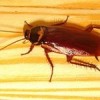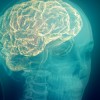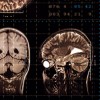Posts tagged biology

Tumor Treatment: Whether to Shrink or Not to Shrink
Feb 6th
Just like normal tissue, tumors need blood vessels to grow. Because of this, drugs that stop angiogenesis, or the formation of new blood vessels, are one important approach to treating cancers. These angiogenesis inhibitors stop tumor growth by starving them of oxygen and nutrients, usually by interfering with signals from the tumor cells that promote blood vessel formation in the surrounding tissue. Angiogenesis inhibitors have been shown to be effective in the treatment of several cancer types, but the results aren’t always as expected. Several recent studies show how complicated this can be. For instance, FDA approval of the drug More >

Cockroach Brains as Medicine
Sep 22nd
Each day your body works to defend you against invaders. Harmful bacteria, viruses, and fungi can enter your system and cause diseases. In addition to relying on your immune system, it is helpful to avoid contact with germs by thoroughly washing your hands and keeping your environment clean.
How is it possible that some organisms have the ability to survive in some of the dirtiest places on earth? What survival mechanisms do they have that differ from ours?
Scientists ground up the brains and other nerve tissues from two species of insects, the American cockroach and the desert locust. Material extracted from More >

Psychosis – New Study Links Gene Variant to Brain Structures
May 12th
A study published in last week’s Science magazine shows how genomic science and neuroimaging can be combined to deliver insights into cognitive disorders. As well as providing an intriguing look into the neurobiology of psychosis, the study reflects a growing trend toward inter-disciplinary research in the neurosciences,
What did the study show?
Psychosis is a disordered cognitive state that can include disorganized thoughts, delusions, or hallucinations. It is a common symptom of schizophrenia and has been linked to a number of brain areas, including the the dorsolateral prefrontal cortex (DLPFC) and the hippocampus. Schizophrenia is also strongly associated with a number of genes, and More >

Can We Diagnose PTSD with Brain Scans?
Apr 18th
Duke University’s Rajendra Morey was in the news this week following a presentation at the World Psychiatric Association Congress in Italy. Dr Morey’s group recently published a paper equating symptoms of post posttraumatic stress disorder (PTSD) with “markedly different neural activity”. Dr. Morey raised the possibility of using brain scans to diagnose PTSD, thereby catapulting herself into the science pages of Forbes, Reuters et al. She joins a lengthy list of researchers that have whetted our appetite with tantalizing suggestions about the predictive power of neuroimaging. Sadly, the list of those who have followed through on this promise is not quite so More >
